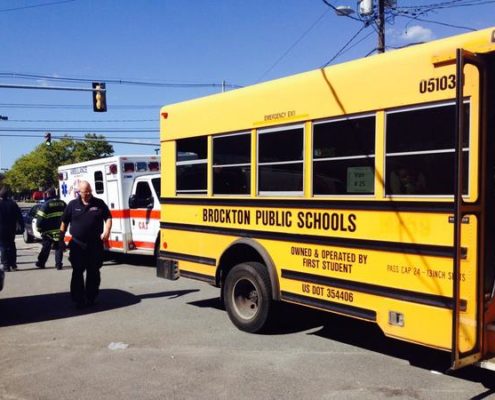
MBTAAnalysis: A look inside the MBTA
0 Comments
/
The MBTA shuttles over a million passengers a day around Greater…
 https://pioneerinstitute.org/wp-content/uploads/CloseupClock-1.jpg
739
1244
Mary Connaughton
https://pioneerinstitute.org/wp-content/uploads/logo_440x96.png
Mary Connaughton2017-02-20 12:34:192017-02-21 09:47:58The Clock is Ticking…….
https://pioneerinstitute.org/wp-content/uploads/CloseupClock-1.jpg
739
1244
Mary Connaughton
https://pioneerinstitute.org/wp-content/uploads/logo_440x96.png
Mary Connaughton2017-02-20 12:34:192017-02-21 09:47:58The Clock is Ticking…….
The Electronic Grants System for Education
The Michigan Electronic Grants System (MEGS) is an initiative that permits online education grant applications to feed directly into the Michigan Department of Education (MDE) system. By removing a time-consuming step from the application process, MEGS has improved performance and slashed administrative costs without any additional state funds. A similar program could benefit both the Massachusetts Department of Education (DOE) and the grant applicants who hope to put state funds to work.

Education Reform in Massachusetts: Aligning District Curricula with State Frameworks
This study, produced by Pioneer Institute’s Center for School Reform, analyzes school district performance assessment data reported by the Massachusetts Office of Educational Quality and Accountability (EQA). This agency audits school districts regularly to evaluate their progress in implementing the reforms articulated by the Massachusetts Education Reform Act of 1993 (MERA).

Education Reform in Massachusetts: Using Student Data to Improve District Performance
This study, produced by Pioneer Institute’s Center for School Reform, analyzes school district performance assessment data reported by the Massachusetts Office of Educational Quality and Accountability (EQA). This agency regularly audits school districts to evaluate their progress in implementing the reforms articulated by the Massachusetts Education Reform Act of 1993 (MERA).

Summary: The Road to a National Curriculum: The Legal Aspects of the Common Core Standards, Race to the Top, and Conditional Waivers
Despite three federal laws that prohibit the federal government from directing, supervising or controlling elementary and secondary school curricula, programs of instruction and instructional materials, the U.S. Department of Education (USDOE) has placed the nation on the road to a national curriculum, according to a new Pioneer report written by Robert S. Eitel and Kent D. Talbert, two former counsels general to the USDOE.

Massachusetts Private School Survey: Gauging Capacity and Interest in Vouchers
This paper takes up the practical question of whether sufficient private school seats would be available for a voucher initiative to get off the ground in Massachusetts. To collect the necessary data, Pioneer Institute designed and conducted a survey of the 524 private, K-12 non-special education schools in Massachusetts. One hundred ninety-four schools serving a total of 50,435 K-12 students responded to the survey, representing 37 percent of all K-12 non-special education private schools in Massachusetts and approximately 43 percent of private school population.

Urban School Reform: A Case Study
Frederick (Rick) Hess, an education scholar at the American Enterprise Institute, led a team of experts in evaluating a seven-year comprehensive reform of the San Diego school system. He presented the team’s findings at Pioneer Forum June 9, 2005. The Forum also included remarks by Nonie Lesaux, an assistant professor at the Harvard Graduate School of Education and one of the San Diego review team members, and Thomas Payzant, Boston schools superintendent, who once served in the same capacity in San Diego. Excerpts of all three participants’ remarks follow.

Massachusetts Collaboratives: Making the Most of Education Dollars
This paper proposes specific policy changes that could result in a more efficient, effective, and equitable system of public education in the Commonwealth of Massachusetts. Although collaboratives are local organizations focused on meeting local needs in a cost-effective manner, the state needs to take a leadership role in fostering their development and utilization.

Parents, Choice, and Some Foundations for Education Reform in Massachusetts
Drawing from a telephone survey of 1,000 public school parents in the ten largest school districts in Massachusetts, this paper critically examines public school parents’ knowledge of and interest in alternative schooling options.

Civic Education: Readying Massachusetts’ Next Generation of Citizens
This paper reports on the state of civic education in Massachusetts, focusing particularly on the performance of charter schools in preparing their students for responsible citizenship. Data were collected in an extensive, original survey project that included schools from across the entire state.

Standards-based education reform in Massachusetts
"Standards-based education reform in Massachusetts" was provided in February 2001.
 https://pioneerinstitute.org/wp-content/uploads/Homeschooling.jpg
832
1248
James Peyser
https://pioneerinstitute.org/wp-content/uploads/logo_440x96.png
James Peyser2000-12-11 09:08:182020-07-31 09:12:36Staying the course on MCAS
https://pioneerinstitute.org/wp-content/uploads/Homeschooling.jpg
832
1248
James Peyser
https://pioneerinstitute.org/wp-content/uploads/logo_440x96.png
James Peyser2000-12-11 09:08:182020-07-31 09:12:36Staying the course on MCAS
School vouchers and expanded parental choice in education
School vouchers and expanded parental choice in education was provided in October 2000.

Teacher Contracts in Massachusetts
This report is an initial effort to provide systematic information on teacher contracts in Massachusetts. In the summer of 1999, the Pioneer Institute solicited copies of the current contract from all districts in the state. From those that responded, 40 districts were selected to reflect the diverse makeup of the Commonwealth. Although there was no attempt to make the sample statistically representative, the three largest urban systems were included, along with a sample of suburbs and small towns.

Charter Colleges: Balancing Freedom and Accountability
This paper applies the charter school idea to public higher education. It makes the case that deregulation coupled with a charter or agreement with the state will enable institutions to operate more efficiently and will produce higher quality educational results. The argument is based on research comparing highly regulated institutions with more independent colleges across the country, as well as interviews with a number of educational, public policy, and political leaders in Massachusetts. The authors draw on the history of Michigan as well as the more recent experience in New Jersey.

Competition in Education a 1999 Update of School Choice in Massachusetts
This study updates the work done by Armor and Peiser. The author gathered data for two additional years of the interdistrict choice program and similar data for the state’s charter school program as well. This update, for the most part, confirms the demographic findings of the initial study with regard to interdistrict choice. The racial impact on sending districts continues to be negligible. The impact on some of the receiving districts was to increase racial diversity; this positive effect continues and is increasing. Clearly, more minority students are taking advantage of the interdistrict choice program.
 https://pioneerinstitute.org/wp-content/uploads/logo_440x96.png
0
0
James Peyser
https://pioneerinstitute.org/wp-content/uploads/logo_440x96.png
James Peyser1999-06-15 08:59:372020-07-31 09:01:20Teacher re-certification
https://pioneerinstitute.org/wp-content/uploads/logo_440x96.png
0
0
James Peyser
https://pioneerinstitute.org/wp-content/uploads/logo_440x96.png
James Peyser1999-06-15 08:59:372020-07-31 09:01:20Teacher re-certification
Budget policy and education reform
Budget policy and education reform testimony was provided in April 1999.

Increasing the number of charter schools in the Commonwealth
Increasing the number of charter schools in the Commonwealth was provided in April 1999.

Money Matters: Alternatives to Education Funding
In September 1998, Pioneer co-sponsored with the Taubman Center for State and Local Government at the Kennedy School of Government a forum featuring Arizona state superintendent of public instruction Lisa Graham Keegan.

Transforming Children’s Lives
In March, 1998, Pioneer Institute sponsored a forum featuring internationally-recognized educator Dr. Lorraine Monroe. Dr. Monroe's career reflects a lifetime commitment to excellence, even in the most difficult and inhospitable conditions.

Putting Our Kids First: Reform and Choice in Education
On March 13, 1997, Dr. Howard Fuller, Director of Marquette University's Institute for the Transformation of Learning and former Superintendent of the Milwaukee Public Schools, addressed a Pioneer Institute Forum about the need for urban school reform.

Making the Case for More Charter Schools
On November 20, 1996, the Commonwealth of Massachusetts Department of Education, The Center for Innovation in Urban Education at Northeastern University, and Pioneer Institute's Charter School Resource Center sponsored a day-long conference on charter school accountability. The keynote address was delivered by former U.S. Secretary of Education and Tennessee Governor Lamar Alexander.

Charter Schools: Raiders or Reformers?
On October 23, 1996, a forum co-sponsored by the Harvard Graduate School of Education and Pioneer Institute focused on the continuing controversy surrounding Massachusetts' charter schools.

Competition, Choice, and the Structure of Public Education
On July 25, 1996, Pioneer Institute held a forum that focused on the state and direction of the Boston Public School System. The forum was co-sponsored by the Boston Private Industry Council. Our panelists represented viewpoints that ranged from a positive appraisal of the city's current school reforms, to the opinion that only a fundamental restructuring of the system can bring real progress. Though the panelists have obvious policy differences, they share one characteristic: each is a Boston parent.

Bilingual Education Reform in Massachusetts
On April 19, 1996, Pioneer Institute held a forum to preview our new book, Bilingual Education in Massachusetts: The Emperor Has No Clothes. For 25 years, the Commonwealth has mandated a single approach to teaching students with limited English proficiency (LEP) in Massachusetts public schools, called transitional bilingual education (TBE), despite the fact that there is virtually no reliable evidence to support its effectiveness.

Changing the Monopoly Structure of Public Education
On January 31, 1996, Pioneer Institute Executive Director James A. Peyser delivered an address to the Boston Economic Club in which he proposed radical reforms to the structure of public education. After 30 years of stagnation and decline, only fundamental structural change can bring about lasting improvement in public education.

Two Perspectives on the Continuing Debate Over School
In our November 1995 Policy Dialogue, "Responses to a Harvard Study on School Choice: Is It a Study at All?" we gathered nine school choice experts to critique a draft manuscript of Who Chooses, Who Loses? Culture, Institutions, and the Unequal Effects of School Choice, edited by Harvard Professors Richard Elmore, Gary Orfield, and Bruce Fuller.

Responses to a Harvard Study on School Choice: Is It a Study at All
A draft of a book entitled School Choice: The Cultural Logic of Families, the Political Rationality of Institutions, soon to be published by Teachers College Press, is receiving a lot of attention in new papers and in education circles- due to a widely circulated Harvard press release.

School Choice: A Marketplace for Education
Pioneer Institute recently organized a roundtable for school officials to discuss their experiences with inter-district public school choice. The participants exchanged view s on the current state of the choice program in Massachusetts.
